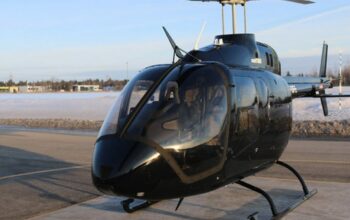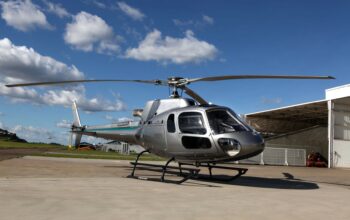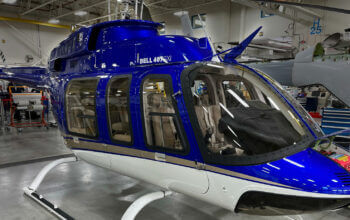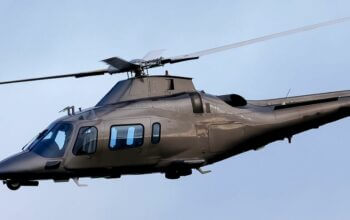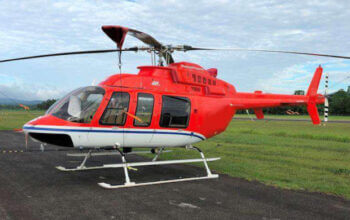Estimated reading time 6 minutes, 45 seconds.
With the federal government just weeks way from introducing its budget, the Canadian Business Aviation Association (CBAA) has set out its priorities for what it would like to see from Finance Minister Bill Morneau if this “valuable but perhaps most underestimated economic asset” is to be preserved and protected.
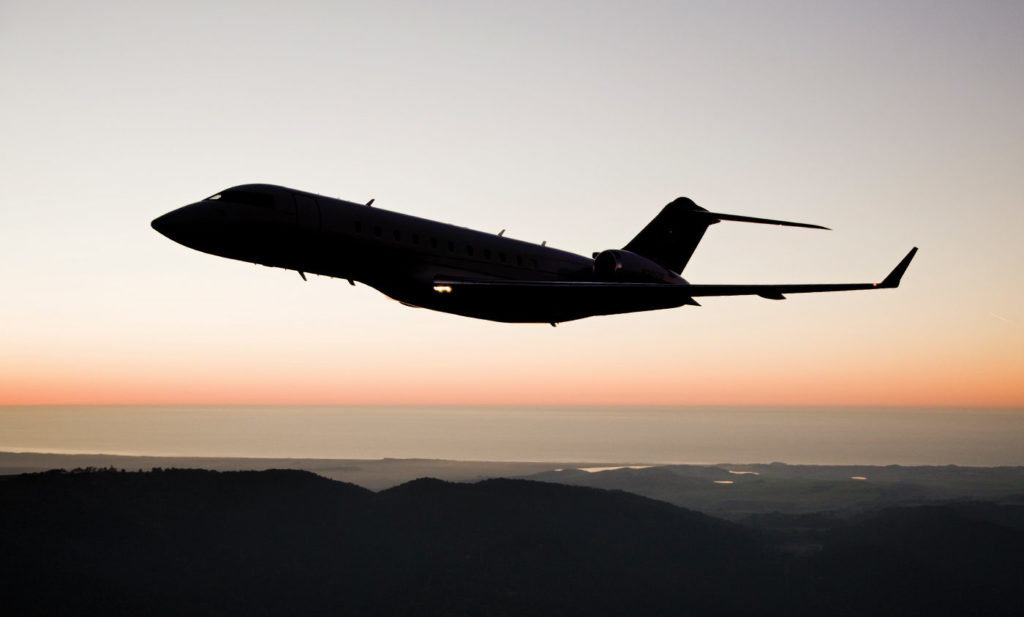
In addition to the minister’s office, the CBAA’s pre-budget brief has been sent to the finance and transportation leadership of all parties in the House of Commons, CBAA president Anthony Norejko told Skies. “Now we’re co-ordinating meetings . . . with the parties while responding to some follow-up questions.”
It’s the first time the CBAA has presented a brief of its own as it pushes itself beyond what has been generally seen as a niche segment within aviation as a whole. “This was never really true,” it said, pointing out that it operates “very differently” from scheduled services and contributes to the economy in ways airlines can’t.
The central theme of its brief is the same as the title, “Shared values and shared opportunities.” It says the budget for the next fiscal year, which begins April 1, can be “the starting point for a new direction and a clear vision” of how the government handles a sector worth $12.1 billion annually to the economy.
The CBAA points out that the 23,000 Canadians employed directly in business aviation manufacturing and operations across the country have an average annual salary of $95,900 – nearly double the national average. A further 24,000 jobs are indirect or induced by business aviation.
“If Canada is to lever the potential of business aviation as a tool of progressive social and economic opportunity,” it states, “government must acknowledge and endorse it as a distinct transportation mode with different attributes, needs and outcomes than scheduled air carriers.”
A key element of that is the CBAA’s recommendation that the Canadian Aviation Regulations (CARs) should be updated to become more flexible and responsive to business aviation, especially small operators.
Safety Management System (SMS) regulations are “symptomatic” of what the CBAA considers “the general regulatory overburden of the CARs”, which it says were developed and published without any risk analysis.
“Since small operators cannot comply with these regulations, the desired safety outcomes from the regulations are not achieved and operators are wasting time and money in a futile attempt to comply. A further unintended consequence of these regulations is the use of ‘work arounds’ that see operators either re-equip with slightly smaller aircraft that are not required to operate under CARs 604 or have registered their aircraft in a ‘flag of convenience’ country.” The CBAA says both situations permit these aircraft to operate to a lower safety standard.
The government also is urged to ensure “clear, fair and reasonable” tax policy – a long-standing irritant for business aviation. Among other things, the CBAA wants business aircraft exempt from a 10 per cent “luxury” tax proposed for the purchase of high-end vehicles of all types.

This is of “particular concern” to business aviation in that sales taxes already are captured in aircraft purchases. The proposal still before Morneau, which has resulted in several meetings between the CBAA and senior officials, implies that only aircraft for pleasure would be affected, the CBAA said a “lack of clarity suggests that those who use small aircraft for business purposes may be inadvertently caught up in the net.”
Closures of some small airports, coupled with landing restrictions and slot allocations at major hubs, is another hot button for the CBAA. It points out that since business aviation contributes some $900 million in taxes annually to local economies, “it is reasonable to have the right to fair and equitable access to runways and services” at the larger hubs.
Four of the CBAA budget recommendations address climate change, a challenge for the aviation industry in general as it co-operates with the federal government and international bodies to reduce emissions and improve fuel efficiency.
While aviation overall contributes only about two per cent of global carbon emissions, and the business sector less than half of that, Canadian business aviation operators are part of a worldwide effort to see emissions in 2050 reduced by 50 per cent from 2005 levels.
“This commitment is achievable as business aviation aircraft tend to be newer than commercial counterparts, developing and deploying cutting edge technologies earlier than airlines,” the CBAA said, calling on the government to:
- Include sustainable fuels in any programs that reduce the tax rate or incent production of renewables;
- Promote avionics upgrades through rebates or a number of tax measures;
- Incent rapid adoption of space based Automatic Dependent Surveillance-Broadcast (ADS-B) to enable more fuel-efficient routings; and
- Support aircraft modifications or the purchase of efficient and technologically advanced aircraft to reduce operators’ environmental footprint.
As for the budget’s timing, that remains a secret for now as Prime Minister Justin Trudeau’s minority Liberal government continues to consult with a broad array of stakeholders while balancing political and economic priorities.
Morneau continues to meet with private and public sector experts with a view to potentially refining those priorities because the Liberals need the support of at least one other party if it’s to get the budget approved. Failure to do so would be a vote of no-confidence that could force another election.



